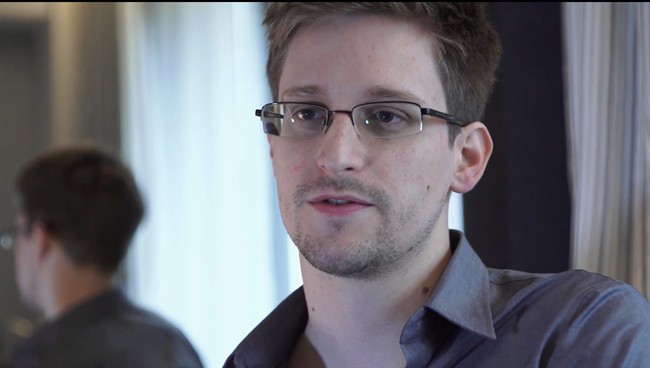Edward Snowden isn’t mincing any words about blowing the whistle on the secret surveillance programs in the United States and its spy partner nations.

His message, in a lengthy interview with the Washington Post, is simple: “I already won.”
“As soon as the journalists were able to work, everything that I had been trying to do was validated. Because, remember, I didn’t want to change society. I wanted to give society a chance to determine if it should change itself,” Snowden told the Washington Post‘s Barton Gellman — one of the journalists he leaked classified intelligence documents to earlier this year.
Gellman conducted a total of 14 hours of interviews with Snowden in Moscow, where Snowden has been evading arrest back in the U.S., since seeking asylum in the country in June. Russia granted the now 30-year-old temporary asylum in August, after he spent more than a month in hiding inside the transit zone of Moscow’s Sheremetyevo International Airport.
According to Gellman, Snowden is leading a private life in the Russian capital, staying out of sight, living off “off ramen noodles and chips” and spending time online — corresponding with journalists and lawyers and keeping an eye on “the progress of his cause.”
“It has always been really difficult to get me to leave the house… I just don’t have a lot of needs,” Snowden said.
He admitted that he had no choice but to stay in Moscow, which isn’t exactly a destination known for press and Internet freedom — something Snowden had championed — or respect for government whistleblowers, because the U.S. government voided his passport while he was in transit to Latin America.
READ MORE: Asylum for Snowden urged by Brazilian Senate’s Foreign Relations Committee president (Dec. 18)
“I am working to improve the NSA,” he said. “I am still working for the NSA right now. They are the only ones who don’t realize it.”
He also said the it was the same officials that have criticized his leaks that more or less appointed him to call out the NSA and reveal how it was monitoring the phone records and emails of millions of Americans and spying on world leaders and trading partners.
READ MORE: Pornoleaks: Edward Snowden reveals NSA’s porn-watching activities
READ MORE: Edward Snowden reveals U.S., U.K. video game surveillance program
There may have been criticisms lobbed and charges laid — espionage and felony theft of government property, to be exact — but, Snowden said as far as he’s concerned “the mission’s already accomplished.”
“All I wanted was for the public to be able to have a say in how they are governed,” he told the Washington Post.
That appears to be happening, to some degree.
Since he leaked the first of his massive trove of documents back in June — there are reports he may possess an estimated 1.7 million pages of classified documents — the revelations have taken surveillance and spying out of the shadows and into the public consciousness.
There have been calls for more accountability in the U.S. and its partner nations in the Five Eyes alliance– Canada, Great Britain, Australia and New Zealand — and within the last week two major developments signaled the government may have to curb its domestic intelligence gathering.
The Washington Post‘s interview with Snowden was the first in-person interview the former intelligence contractor has given since he arrived in Russia in June. He’ll also give a televised message to Britons on Christmas Day, when Channel 4 News features him in station’s annual “Alternative Christmas Message.”
The message was reportedly filmed by documentary filmmaker Laura Poitras, who, along with former Guardian journalist Glenn Greenwald, first met with Snowden in May and broke the story about the NSA phone records collection program on June 2.
READ MORE: NSA rulings could help Canadian group argue case against CSEC
*With files from the Washington Post and The Associated Press
CORRECTION: An earlier version of this story identified Laura Poitras as a “former Guardian journalist.” Poitras is a documentary filmmaker who co-published articles about the NSA in the Guardian, along with Glenn Greenwald.




Comments